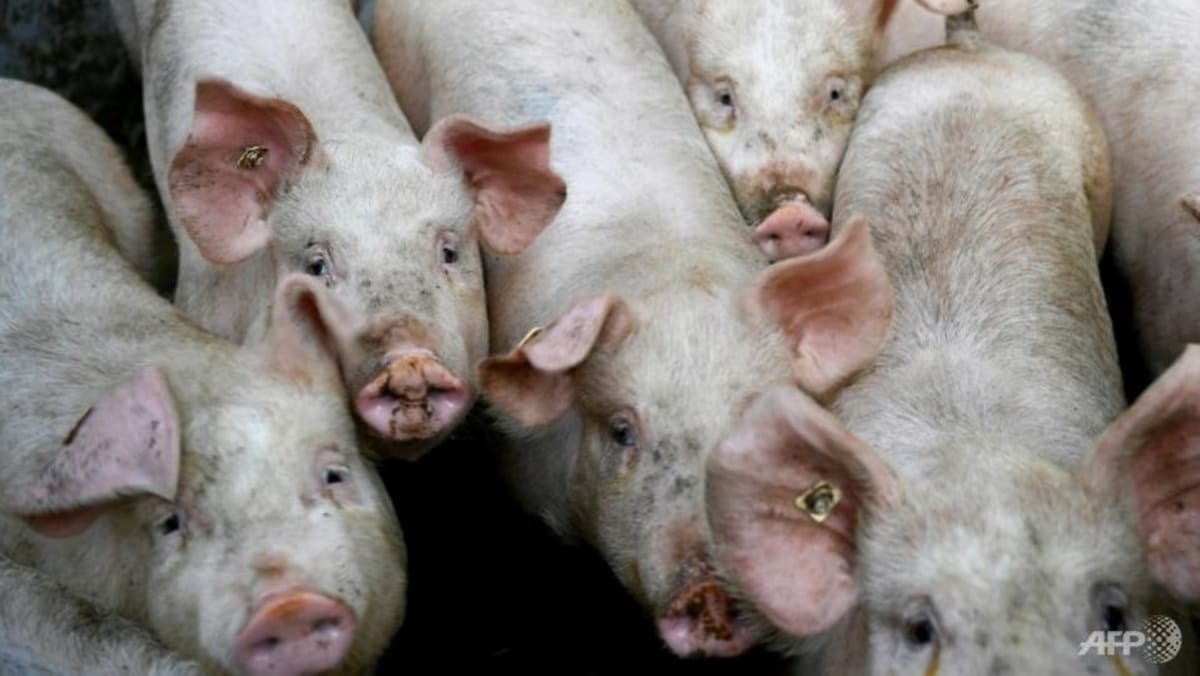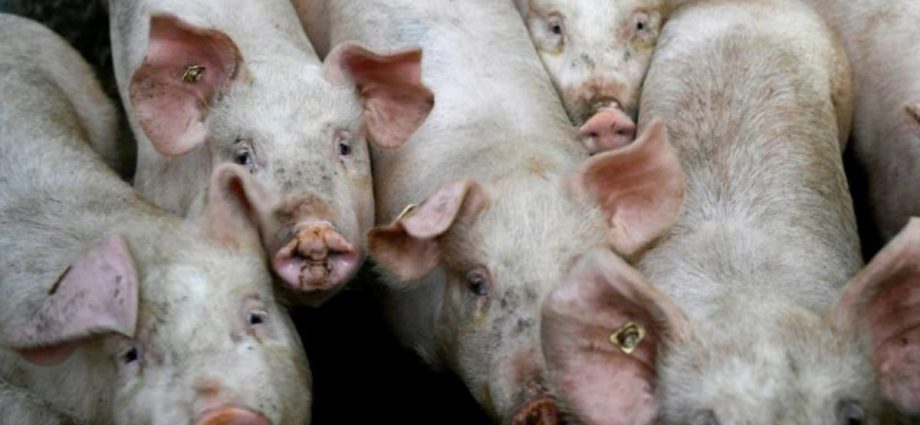
SINGAPORE/PARIS: The resumption of live pig production and exports from Indonesia’s Pulau Bulan could take up to a year, said the Singapore Food Agency (SFA) on Tuesday (May 9).
Singapore stopped the import of live pigs from the island after African swine fever (ASF) was detected in some pig carcasses, said the agency last month.
The carcasses were from a consignment of live pigs from Pulau Bulan and have been removed from the abattoir line.
The World Organisation for Animal Health (WOAH) on Tuesday said Indonesia had confirmed an ASF outbreak on a farm on Pulau Bulan.
In a Facebook post, SFA said Singapore authorities would continue to assess the situation.
“Such food supply disruptions can happen from time to time. We will continue to work with the industry to diversify our import sources and strengthen our food resilience,” it said.
For example, Mexico was recently approved to export chilled pork to Singapore, SFA noted.
President of the Meat Traders Association in Singapore Alvin Kwek also added that its members have activated “more than 20 sources” of chilled and frozen pork from different countries.
They have sufficient stock of frozen pork to last for “months” should the supply chain for pork be disrupted, he said in a press release.
“We urge industry players and consumers alike to be open to alternative supply sources and remain flexible by considering using chilled or frozen pork from alternative sources.”
SFA also urged consumers to explore “other protein options”.
Citing Indonesian authorities, the Paris-based WOAH said the ASF outbreak had killed 35,297 pigs in a herd of 285,034 on a farm on Pulau Bulan.
The outbreak was detected on Apr 1 and confirmed on Apr 28.
Pulau Bulan is located within the Riau Islands and adjacent to Batam island.
ASF is not dangerous to humans but is fatal for pigs. It has plagued China for years, with an initial wave during 2018 and 2019 killing millions of pigs and leading to a dramatic decline in meat output that roiled global markets. China is facing a recent surge in infections this year.
The source of the Indonesian outbreak is still unknown but veterinarian authorities told WOAH that humans, vehicles, feed, flies and wild boar may have played an important role in the introduction of ASF on the farm.
They also confirmed that the investigation started after the disease was detected by Singapore’s SFA in imported pigs.

